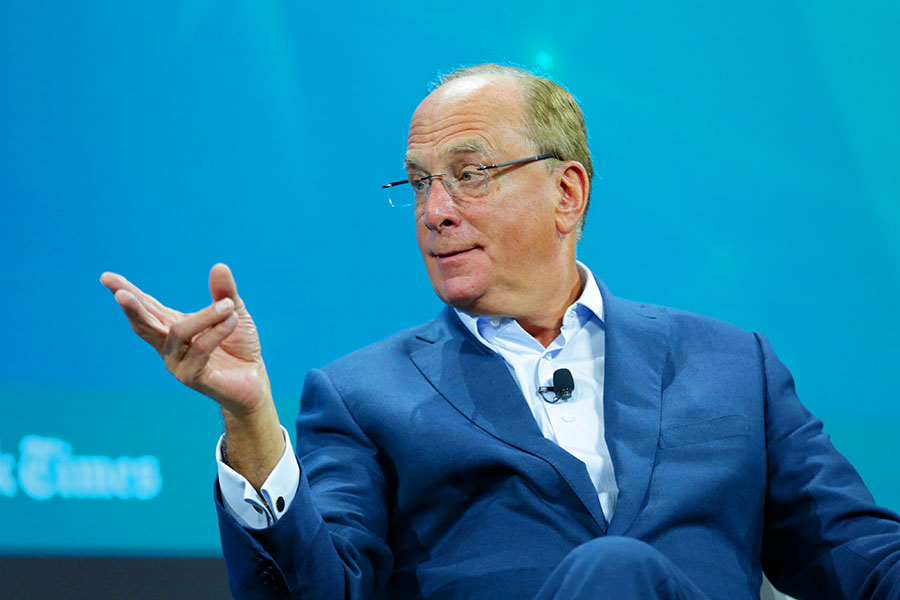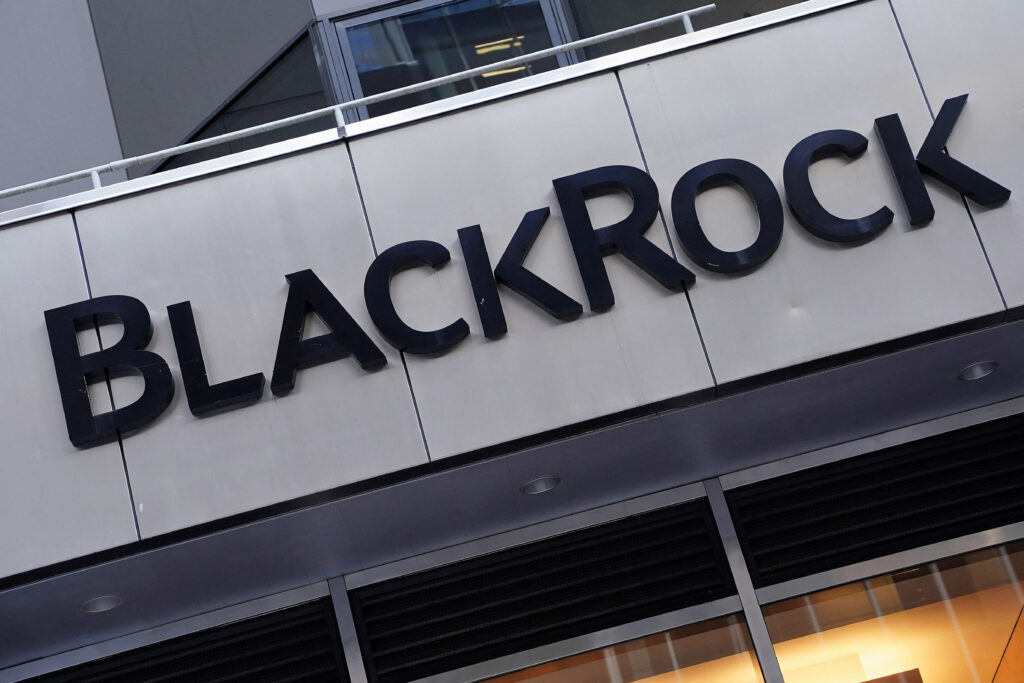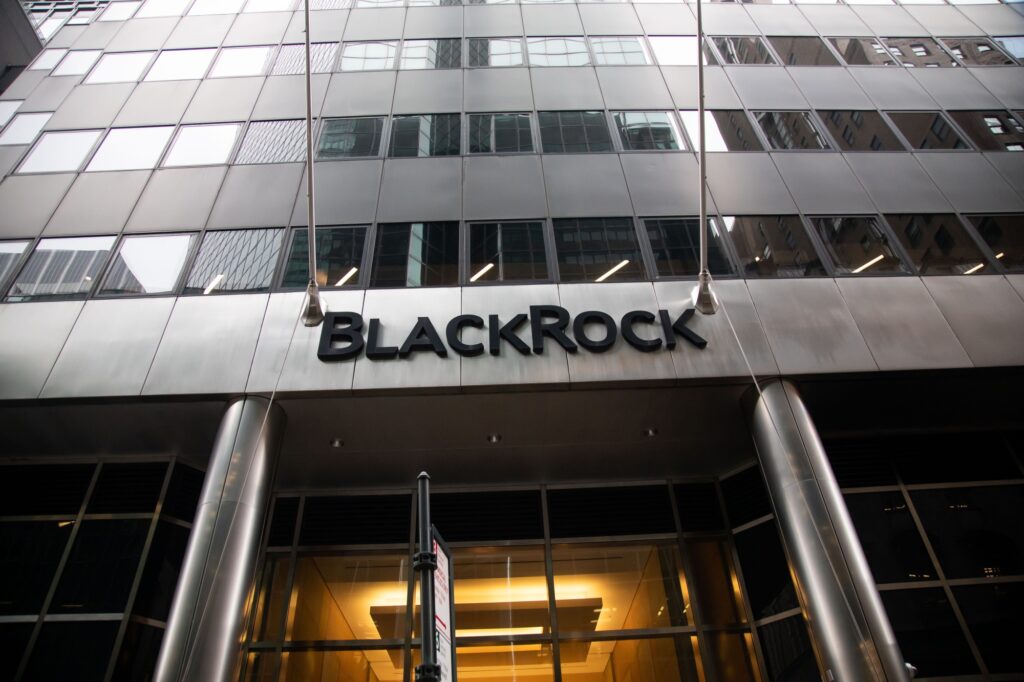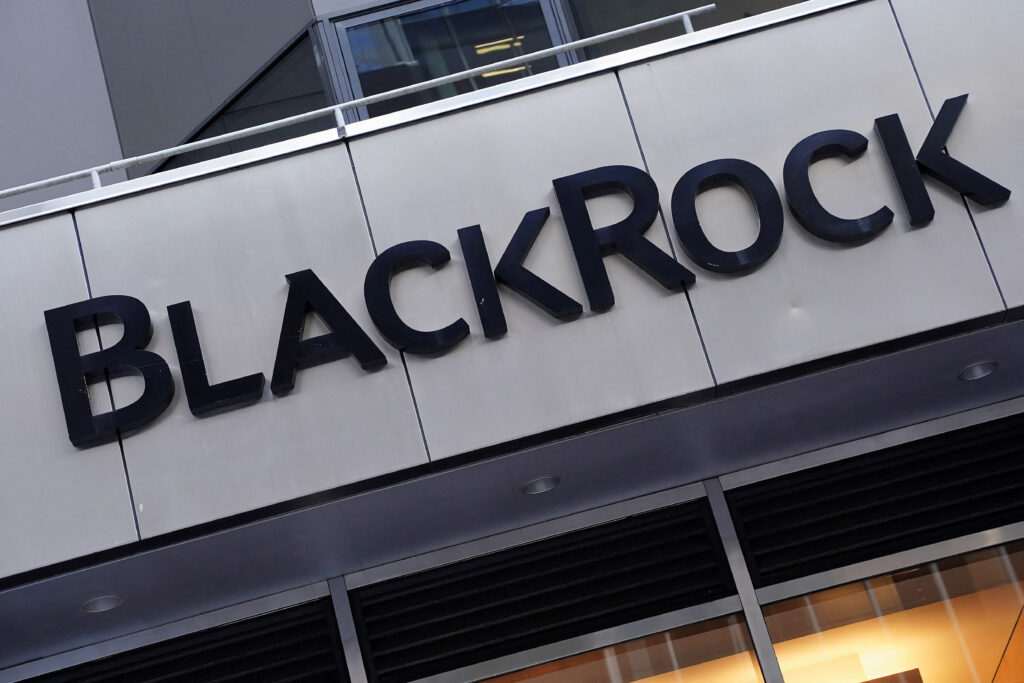BlackRock is the world’s largest asset manager, with over $9 trillion in assets under management. The company has been criticized for its size and influence, and some have argued that it is too big to fail. However, BlackRock has also been praised for its innovative investment strategies and its commitment to sustainability.
Current Situation
- Assets under management: $9.42 trillion (as of June 30, 2023)
- Employees: 16,200
- Offices: 30 countries
- Clients: Institutional investors, including pension funds, endowments, and foundations
Recent Developments
- BlackRock has been expanding its business into new areas, such as private equity and real estate.
- The company has also been investing heavily in technology, in an effort to improve its data analytics and risk management capabilities.
- BlackRock has been a vocal advocate for sustainable investing, and has launched a number of initiatives to promote ESG (environmental, social, and governance) investing.
Challenges
- BlackRock faces increasing competition from other asset managers, including Vanguard and State Street.
- The company is also facing regulatory scrutiny, as governments around the world are concerned about the potential systemic risks posed by large asset managers.
- BlackRock has been criticized for its exposure to fossil fuels, and has been called on to divest from these assets.
Outlook
- BlackRock is well-positioned for the future, as it has a strong track record of performance and a deep bench of talent.
- The company is also likely to benefit from the continued growth of the asset management industry.
- However, BlackRock will need to address the challenges listed above in order to maintain its position as the world’s largest asset manager.
Overall, BlackRock is a complex and multifaceted company with a wide range of strengths and weaknesses. The company is likely to continue to play a major role in the global financial system for many years to come, but it will face increasing challenges in the years ahead.
Table of Contents
Business Overview
BlackRock is a global investment management corporation with over $9.42 trillion in assets under management (AUM) as of June 30, 2023. The company offers a wide range of investment products and services to institutional and retail investors around the world. BlackRock is headquartered in New York City and has offices in 30 countries.
BlackRock’s History and Growth
BlackRock was founded in 1988 by Larry Fink, Susan Wagner, and Peter Lynch. The company initially focused on providing risk management services to institutional investors, but it soon expanded into other areas of asset management, such as fixed income, equities, and alternative investments. BlackRock’s growth has been fueled by a number of factors, including the company’s strong investment performance, its innovative product offerings, and its global reach.
BlackRock’s Business Model
BlackRock’s business model is based on charging fees to clients for its investment management services. The company’s fees are typically based on a percentage of the assets under management (AUM). BlackRock also generates revenue from other sources, such as performance fees and transaction fees.
BlackRock’s Products and Services
BlackRock offers a wide range of investment products and services to institutional and retail investors. Some of the company’s most popular products include:
- Mutual funds: BlackRock offers a variety of mutual funds, which are pools of money that are invested in a diversified portfolio of securities.
- Exchange-traded funds (ETFs): BlackRock is the world’s largest provider of ETFs, which are baskets of securities that trade on exchanges like stocks.
- Institutional investment products: BlackRock offers a variety of investment products to institutional investors, such as pensions, endowments, and foundations.
- Retirement solutions: BlackRock offers a variety of retirement solutions, such as 401(k) plans and individual retirement accounts (IRAs).
BlackRock’s Clients
BlackRock’s clients include a wide range of institutional and retail investors. Some of the company’s largest clients include pension funds, endowments, foundations, sovereign wealth funds, and corporations. BlackRock also has a growing number of retail investors, who invest in the company’s products through financial advisors or directly through BlackRock’s website.
BlackRock’s Global Footprint
BlackRock is a truly global company with offices in 30 countries. The company’s global reach allows it to serve clients in all major markets around the world. BlackRock also has a deep understanding of local markets, which helps it to develop investment products and services that are tailored to the needs of its clients.
Investment Strategies

BlackRock offers a wide range of investment strategies to meet the diverse needs of its clients. These strategies can be broadly categorized into five main areas:
BlackRock’s Active Investment Strategies
BlackRock’s active investment strategies are based on the belief that the company’s investment professionals can outperform the market by carefully selecting securities and making timely investment decisions. BlackRock’s active investment strategies include:
- Fundamental investing: BlackRock’s fundamental investment teams conduct in-depth research on individual companies and industries in order to identify securities that are undervalued by the market.
- Growth investing: BlackRock’s growth investment teams focus on investing in companies that are expected to experience above-average growth in the future.
- Value investing: BlackRock’s value investment teams focus on investing in companies that are trading at a discount to their intrinsic value.
BlackRock’s Passive Investment Strategies
BlackRock’s passive investment strategies are designed to track the performance of a particular market index, such as the S&P 500 or the MSCI World Index. BlackRock’s passive investment strategies include:
- Index investing: BlackRock index funds track the performance of a specific market index, while BlackRock exchange-traded funds (ETFs) are baskets of securities that are designed to track the performance of a particular market index.
- Smart beta investing: BlackRock smart beta ETFs track the performance of indexes that are based on factors other than market capitalization, such as value, growth, or momentum.
BlackRock’s Factor-Based Investment Strategies
BlackRock’s factor-based investment strategies are based on the belief that certain factors, such as value, growth, or momentum, can be used to generate excess returns over the long term. BlackRock’s factor-based investment strategies include:
- Value investing: BlackRock value ETFs invest in companies that are trading at a discount to their intrinsic value.
- Growth investing: BlackRock growth ETFs invest in companies that are expected to experience above-average growth in the future.
- Momentum investing: BlackRock momentum ETFs invest in companies that are exhibiting strong price momentum.
BlackRock’s Environmental, Social, and Governance (ESG) Investment Strategies
BlackRock’s ESG investment strategies are designed to integrate environmental, social, and governance (ESG) considerations into the investment process. BlackRock’s ESG investment strategies include:
- ESG integration: BlackRock ESG integration funds consider ESG factors alongside traditional financial factors in the investment process.
- Sustainable investing: BlackRock sustainable investing funds invest in companies that are considered to be sustainable and responsible businesses.
- Impact investing: BlackRock impact investing funds invest in companies that are specifically designed to generate a positive social or environmental impact.
BlackRock’s Retirement Solutions
BlackRock offers a variety of retirement solutions to help individuals and institutions save for retirement. BlackRock’s retirement solutions include:
- Target-date funds: BlackRock target-date funds are designed to automatically adjust their asset allocation as investors approach retirement.
- Retirement savings plans: BlackRock retirement savings plans, such as 401(k) plans, offer individuals a variety of investment options to save for retirement.
- Pension solutions: BlackRock offers a variety of pension solutions to help institutions manage their pension plans.
BlackRock Corporate Governance

BlackRock’s board of directors
BlackRock’s board of directors is responsible for overseeing the company’s business and ensuring that it is managed in the best interests of its shareholders. The board is composed of 14 members, all of whom are independent of BlackRock’s management. The board meets regularly to discuss and approve the company’s strategic plans and to make other important decisions.
BlackRock’s executive leadership team
BlackRock’s executive leadership team is responsible for managing the company’s day-to-day operations. The team is led by CEO Larry Fink and includes other senior executives from various areas of the company. The executive leadership team is responsible for developing and implementing BlackRock’s strategic plans, as well as for managing the company’s risks and opportunities.
BlackRock’s corporate sustainability practices
BlackRock is committed to corporate sustainability and has a number of initiatives in place to reduce its environmental impact and promote social responsibility. The company has set ambitious goals for reducing its greenhouse gas emissions and increasing its use of renewable energy. BlackRock is also committed to diversity and inclusion and has a number of programs in place to promote diversity in its workforce and in its investments.
BlackRock’s shareholder activism
BlackRock is a large and influential shareholder in many companies, and it uses its influence to promote good corporate governance practices. BlackRock engages with companies on a variety of issues, including executive compensation, board composition, and ESG considerations. BlackRock also votes on shareholder resolutions and uses its proxy voting power to support proposals that it believes are in the best interests of its shareholders.
BlackRock’s regulatory compliance
BlackRock is a regulated financial institution and is subject to a number of laws and regulations. The company has a strong compliance program in place to ensure that it is in compliance with all applicable laws and regulations. BlackRock also cooperates with regulators and provides them with information as requested.
BlackRock is committed to upholding the highest standards of corporate governance. The company’s board of directors, executive leadership team, and all of its employees are committed to acting in the best interests of the company’s shareholders. BlackRock is also committed to corporate sustainability and shareholder activism. The company is a responsible corporate citizen and is committed to making a positive impact on the world.
The rise of passive investing in BlackRock

The growth of passive investing is one of the most significant trends in the asset management industry. Passive investment strategies, such as index funds and exchange-traded funds (ETFs), have become increasingly popular in recent years due to their lower fees and greater transparency compared to active investment strategies.
The rise of passive investing has been driven by a number of factors, including:
- The decline of active investment performance: In recent years, active investment managers have struggled to outperform the market, which has led many investors to question the value of paying high fees for active management.
- The growth of retirement investing: As more people save for retirement, they are increasingly looking for low-cost investment options that can help them meet their long-term investment goals.
- The development of new passive investment products: The asset management industry has developed a wide range of new passive investment products in recent years, which has made it easier for investors to find products that meet their specific needs.
The growth of ESG investing
ESG investing, which is also known as sustainable investing, is another major trend in the asset management industry. ESG investing is a type of investing that considers environmental, social, and governance factors in addition to traditional financial factors.
The growth of ESG investing has been driven by a number of factors, including:
- The increasing awareness of ESG issues: Investors are becoming increasingly aware of the impact of their investments on the environment, society, and governance.
- The demand for ESG investment products: Investors are demanding more ESG investment products, and the asset management industry is responding by developing a wide range of new ESG investment products.
- The regulatory landscape: Governments around the world are increasingly promoting ESG investing, and this is leading to a more favorable regulatory environment for ESG investing.

The increasing use of technology in asset management
Technology is playing an increasingly important role in the asset management industry. Asset managers are using technology to improve their investment performance, reduce costs, and enhance their risk management capabilities.
Some of the ways in which technology is being used in the asset management industry include:
- Big data and analytics: Asset managers are using big data and analytics to analyze large amounts of data to identify investment opportunities and make better investment decisions.
- Artificial intelligence (AI): Asset managers are using AI to develop new investment strategies and to automate tasks.
- Blockchain: Asset managers are using blockchain to improve the transparency and efficiency of transactions.
The regulatory landscape for asset managers
The regulatory landscape for asset managers is becoming increasingly complex. Governments around the world are introducing new regulations to protect investors and to promote financial stability.
Some of the key regulatory trends for asset managers include:
- The implementation of new capital requirements: Asset managers are subject to new capital requirements that are designed to reduce the risk of systemic financial instability.
- The introduction of new disclosure requirements: Asset managers are subject to new disclosure requirements that are designed to provide investors with more information about their investment strategies and risks.
- The increasing scrutiny of ESG investing: Regulators are increasingly scrutinizing ESG investing practices to ensure that ESG claims are accurate and that ESG factors are being integrated into investment processes in a meaningful way.
The future of the asset management industry
The asset management industry is facing a number of challenges in the future, including:
- The continued growth of passive investing: The growth of passive investing is putting pressure on asset managers’ fees, and this is likely to continue in the future.
- The rise of new asset classes: The asset management industry is facing increasing competition from new players, such as venture capital firms and private equity firms.
- The increasing regulatory burden: The increasing regulatory burden is making it more complex and costly for asset managers to operate.
Despite these challenges, the asset management industry is expected to continue to grow in the future. This is due to a number of factors, including:
- The increasing demand for investment services: The demand for investment services is expected to grow as more people save for retirement and as more people invest in emerging markets.
- The growth of new investment products: The asset management industry is developing a wide range of new investment products that are designed to meet the needs of investors, such as target-date funds and robo-advisors.
- The increasing use of technology: Technology is playing an increasingly important role in the asset management industry, and this is expected to continue in the future.
Overall, the asset management industry is facing a number of challenges in the future, but it is also expected to continue to grow. Asset managers that are able to adapt to the changing landscape are likely to be successful in the future.
BlackRock’s size and influence

BlackRock is the world’s largest asset manager, with over $9.42 trillion in assets under management. This gives the company enormous influence over the global financial system. Critics argue that BlackRock’s size and influence give it too much power over the economy and that the company is too big to fail.
BlackRock’s exposure to fossil fuels
BlackRock is a major investor in fossil fuels, which are the primary driver of climate change. Critics argue that BlackRock is not doing enough to divest from fossil fuels and that the company is not using its influence to pressure companies to transition to a low-carbon economy.
BlackRock’s use of algorithms
BlackRock uses algorithms to make investment decisions, which has raised concerns about transparency and accountability. Critics argue that BlackRock’s algorithms are a black box and that investors do not know how they are making decisions. They also argue that BlackRock’s algorithms could lead to systemic risks in the financial system.
BlackRock’s political activism
BlackRock has become increasingly vocal on political issues in recent years. This has raised concerns about whether the company is using its influence to promote its own interests rather than the interests of its shareholders. Critics argue that BlackRock’s political activism is a conflict of interest and that the company should focus on its core business of managing investments.
These are just some of the specific issues that BlackRock is facing. The company is likely to continue to face scrutiny and criticism as it grows in size and influence.
What does the BlackRock do?
BlackRock is a global investment management firm with a broad range of products and services for institutional and retail investors. Here’s a summary of their key activities:
- Asset Management: BlackRock manages a vast portfolio of assets, including stocks, bonds, real estate, and alternative investments. They employ various investment strategies, such as active investing, passive investing, and factor-based investing, to cater to diverse investor needs.
- Investment Products: BlackRock offers a diverse array of investment products, including mutual funds, exchange-traded funds (ETFs), institutional investment products, and retirement solutions. These products provide investors with access to various asset classes and investment strategies.
- Risk Management: BlackRock provides risk management services to institutional investors, helping them assess, manage, and mitigate investment risks. Their Aladdin platform is a widely used risk management tool in the financial industry.
- Environmental, Social, and Governance (ESG) Investing: BlackRock integrates ESG considerations into its investment process, seeking to identify sustainable and responsible businesses. They offer ESG-focused products and engage with companies to promote ESG practices.
- Shareholder Activism: BlackRock uses its influence as a major shareholder to advocate for good corporate governance and sustainable practices among the companies it invests in. They engage with company management and vote on shareholder resolutions to promote responsible business practices.
- Technology and Innovation: BlackRock invests heavily in technology and innovation to enhance its investment performance, risk management capabilities, and client service. They utilize data analytics, artificial intelligence, and other technologies to stay ahead of market trends and provide value to their clients.
- Global Presence: BlackRock operates in over 30 countries around the world, serving a diverse client base and investing in global markets. They have a deep understanding of local markets and regulations, enabling them to provide tailored investment solutions to clients worldwide.
Who is BlackRock owned by?
BlackRock is not owned by a single individual or company. Instead, its shares are owned by a large number of individual and institutional investors. As of October 4, 2023, the top five institutional shareholders of BlackRock were:
- The Vanguard Group (7.25%)
- State Street Corporation (5.91%)
- Bank of America Corporation (4.24%)
- BlackRock Inc. (3.96%) (Held in treasury for employee benefit plans)
- Fidelity Management & Research LLC (3.42%)
These institutional shareholders hold shares on behalf of their clients, which include pension funds, endowments, foundations, and other institutional investors. Individual investors also hold a significant portion of BlackRock’s shares. As of October 4, 2023, individual investors held approximately 43% of BlackRock’s outstanding shares.
The fact that BlackRock is not owned by a single individual or company helps to ensure its independence and objectivity. This is important because BlackRock is a large and influential asset manager, and its decisions can have a significant impact on the global financial system.
What is the net worth of BlackRock?
As of December 2023, BlackRock’s market capitalization or net worth was approximately $112.52 billion. This means that the total value of the company’s shares is roughly $112.52 billion.
Who are the 7 partners of BlackRock?
BlackRock was founded in 1988 by eight financial professionals, not seven. The eight founders were:
- Larry Fink, the current Chairman and Chief Executive Officer of BlackRock
- Susan Wagner, the former Vice Chairman of BlackRock
- Barbara Novick, the former Executive Managing Director of BlackRock
- Ben Golub, the former Chief Investment Officer of BlackRock
- Hugh Frater, the former Head of BlackRock’s Fixed Income Group
- Ralph Schlosstein, the former Chief Operating Officer of BlackRock
- Keith Anderson, the former Head of BlackRock’s Risk Management Group
- Robert S. Kapito, the former President of BlackRock.
How BlackRock controls the world?
BlackRock was founded in 1988 by eight financial professionals, not seven. The eight founders were:
- Larry Fink, the current Chairman and Chief Executive Officer of BlackRock
- Susan Wagner, the former Vice Chairman of BlackRock
- Barbara Novick, the former Executive Managing Director of BlackRock
- Ben Golub, the former Chief Investment Officer of BlackRock
- Hugh Frater, the former Head of BlackRock’s Fixed Income Group
- Ralph Schlosstein, the former Chief Operating Officer of BlackRock
- Keith Anderson, the former Head of BlackRock’s Risk Management Group
- Robert S. Kapito, the former President of BlackRock
Who is the biggest investor in BlackRock?
As of October 4, 2023, the biggest investor in BlackRock was The Vanguard Group, holding 7.25% of the company’s shares. Vanguard is a global investment management company with over $7.8 trillion in assets under management. It serves a wide range of investors, including individuals, institutions, and governments.
Here are the top five institutional shareholders of BlackRock as of October 4, 2023:
- The Vanguard Group (7.25%)
- State Street Corporation (5.91%)
- Bank of America Corporation (4.24%)
- BlackRock Inc. (3.96%) (Held in treasury for employee benefit plans)
- Fidelity Management & Research LLC (3.42%)
What is the minimum investment for BlackRock?
The minimum investment for BlackRock varies depending on the specific product or service. Here’s a breakdown of the minimum investment requirements for different types of BlackRock accounts:
Individual Investor Accounts:
- Mutual Funds: The minimum initial investment for most BlackRock mutual funds is $1,000 per fund. However, some funds may have higher minimums, such as $2,500 or $5,000.
- ETFs: The minimum initial investment for most BlackRock ETFs is $100 per fund. However, some ETFs may have higher minimums, such as $250 or $500.
Automatic Investment Plans (AIPs):
An AIP allows you to invest in BlackRock mutual funds or ETFs on a regular basis, such as monthly or quarterly. The minimum investment for an AIP is typically $50 per fund.
Retirement Accounts:
The minimum investment for BlackRock retirement accounts, such as 401(k)s and IRAs, may depend on the specific plan rules. However, many plans allow you to start investing with as little as $25.
Please note that these are just general guidelines, and the actual minimum investment requirements may vary depending on your individual circumstances. It is always best to check with BlackRock directly for the specific requirements for the product or service you are interested in.
